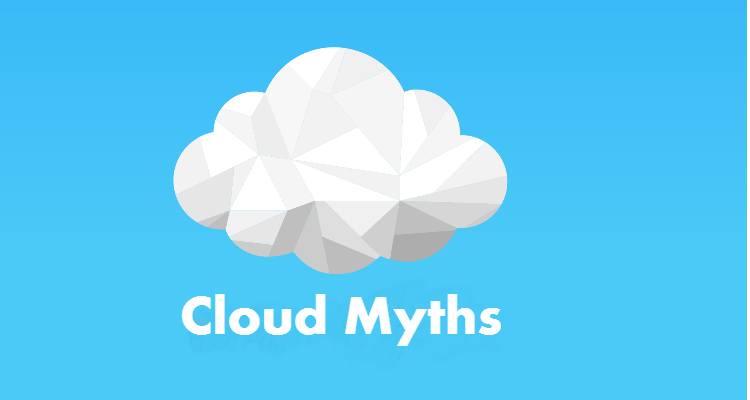Even though cloud solution has earned a remarkable prominence in the industry, there are still some myths around that overshadow the value of cloud. These myths are holding companies from deploying cloud solutions because they consider the technology to be a risky business. Let's discuss some common myths and the truth behind it.
Cloud affects the environment
In fact, cloud is rather eco-friendly. Cloud is more energy-efficient than on-site data center as cloud servers consume comparatively less electricity whereas on-site IT house consume considerable amount of energy once you account for lighting, cooling and maintenance.
Cloud migration is more hassle
Cloud migration certainly requires some cleansing and architecture revision, especially if you're operating on very old servers. Yet, the process of cloud migration is relatively easy and less of a hassle. Moreover, everything can be done rather efficiently and smoothly if you are linked with a highly reliable hosting service provider.
Cloud is vulnerable to cyber attacks
All hosting services are vulnerable to threat; in fact, even our local computers and mobile devices are vulnerable to online risks. But the ability and the security features of cloud services is what sets it apart and makes it a more safe option. When it comes to securing confidential and sensitive business data and applications, organization usually prefer private cloud while less important data is stored on public cloud. Data center service providers ensure the physical safety of the hardware on which your data is running and assures recovery solutions as well. So you tend to share the responsibility regarding security with your service provider.
Cloud is a cheaper option
Cloud is not a cheaper option but it is more of a cost-efficient option. Running data and application on cloud can save you energy bill and other maintenance cost compared to a dedicated server. With its scalable feature, you can scale up or down the compute resources as per business demand.
Cloud offers automation, eliminating the need for support
Surely cloud lets you automate everything from the infrastructure upward, but to manage it you need to have the significant level of expertise, understanding and knowledge of the tools used. With automation, an app developer would be able to easily design applications in the cloud. But to manage the automation, developers need to have the particular understanding required to use this tool. If not, then perhaps you'll require additional support that can better assist you with automation techniques.

